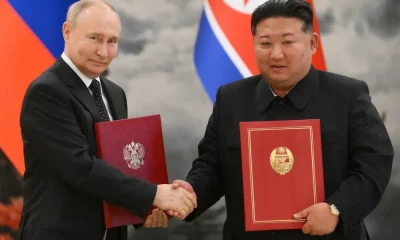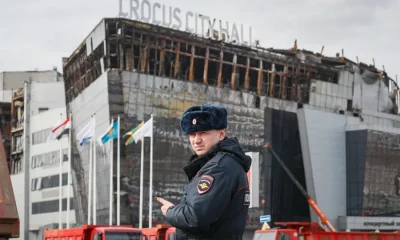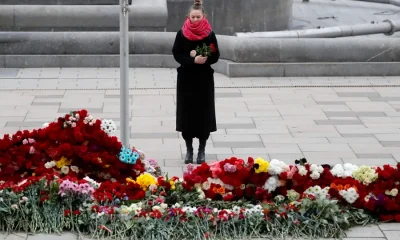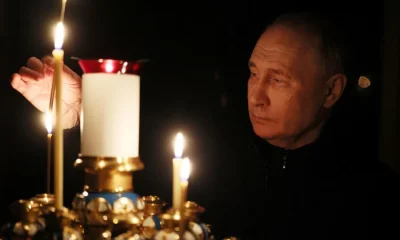International
Putin closes the electoral campaign with the aim of perpetuating himself in the Kremlin
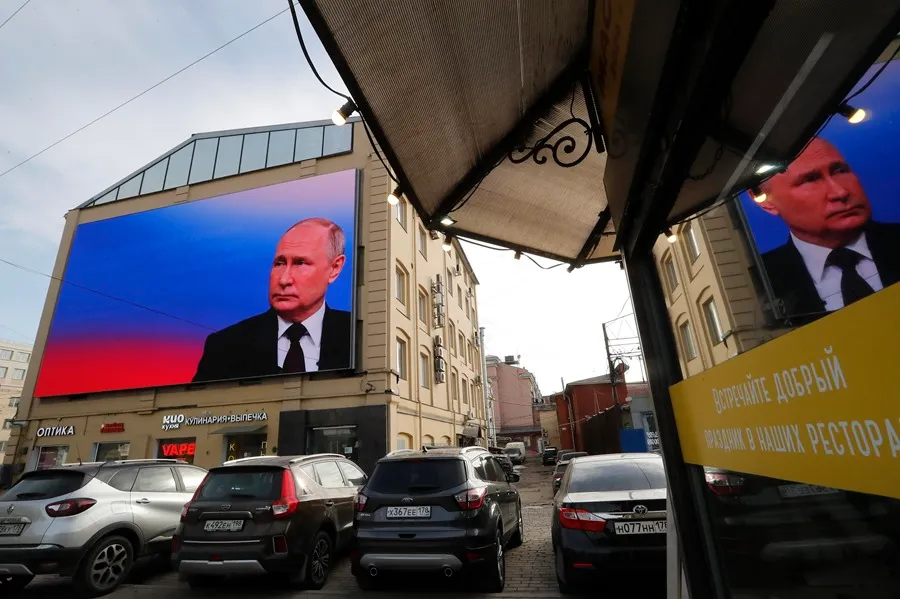
Russian President Vladimir Putin closed the electoral campaign today with the clear objective of perpetuating another six years in the Kremlin, something more than likely, according to all the polls, while calls for the West not to recognize the results of the presidential elections increase.
“The world must assume once and for all that Putin is not who he appears. He is actually a usurper, a tyrant, a war criminal and a murderer,” said Yulia Naválnaya, widow of the late opposition leader, Alexéi Navalni, in an article published this week in The Washington Post.
The 112 million Russians called to the polls will be able to vote for three days – Friday, Saturday and Sunday -, an option introduced during the pandemic, which the opposition considers fraudulent, as well as electronic voting, which a third of the electorate will be able to exercise.
Putin addressed the Russians on Thursday on television to come and vote in elections that he described as a “step into the future” and stressed that the soldiers who fight in Ukraine “defending the homeland with courage and heroism and participating in the elections, give an example to all of us.”
Despite the fact that more than half of Russians advocate opening peace negotiations with Ukraine and the successes on the Ukrainian battlefield come with a eye-t-eater, Putin has a voting intention of more than 80%.
The presidential administration had informed the press that it was looking for a historic victory to support the Kremlin’s militaristic course and everything indicates that it will achieve it, since Putin had never won elections by more than 77% of the votes.
The Central Electoral Commission (CEC) only registered three candidates, none of them really opposition: the communist Nikolai Kharitonov and the candidate of the New People, Vladislav Davankov, who have a 6% voting intention, and the ultra-nationalist Leonid Slutski, who is listed as third in discord with 5%.
By reforming the clauses of the Constitution that prevented him from remaining in the Kremlin, Putin will be able to run for re-election again in 2030, by the time he will be 77 years old.
The president of the CEC, Ela Pamfílova, said today that “for the first time” the elections are held in “such a toxic international atmosphere” and accused Western countries of “an unprecedented cynical violation” of the right to vote of Russians residing abroad.
“This is not simply a president’s election, the destiny of Russia is at stake, what to do in the future. By the way, to a large extent (these elections) will determine how the world will develop. The transition from the unfair monopoly to equal relations between countries,” he proclaimed.
Pamfilova, who is accused by the opposition of manipulating the electoral results since she took office in 2016, said that these days the popular republics of Donetsk and Lugansk, and the Zaporiya and Kherson regions, will also vote, in reference to the four Ukrainian territories annexed by Russia.
Up to 4.5 million residents in the areas occupied by the Russian Army will be able to exercise their right to vote, even if they lack Russian citizenship, many of them have already voted in advance.
The highest moment of the campaign was the death of Navalni in prison – and for which the family and the West hold Putin responsible – but the Kremlin hopes that this factor will not stain his victory.
“I think they killed him. It was a premeditated decision. I think they did it with poison,” Guennadi Gudkov, a former Russian deputy exiled in Bulgaria, told EFE.
Gudkov, who worked in the Federal Security Service (FSB), believes that the authorities decided to take revenge on the opponent for “all the humiliations” to which he subjected them over the years with his allegations of corruption.
“The organizer was Putin,” said Gudkov, who recalled that the initial plan was for Navalni to never leave prison, but they changed their minds after admitting as a “great mistake” the pardon granted to the tycoon Mikhail Khodorkovsky in 2013.
For all these reasons, Navalnaya, the imprisoned opposition Vladimir Kara-Murzá and Gudkov address Western leaders, parliaments and societies with a single demand: that they do not recognize “totally falsified” elections, whose only objective is to “retain power.”
“The West should not recognize the results. Recognizing Putin as head of state after the elections will be a sign of weakness,” he said.
He assured that “there have never been such criminal elections in Russia,” since they take place when Russian troops violate international law and commit “war crimes” in Ukraine.
“We do not ask that the embassies be closed,” he said, adding that, at least, Western countries “should not recognize the elections as legitimate.”
International
Spain’s irregular migrant population rises to 840,000, study finds
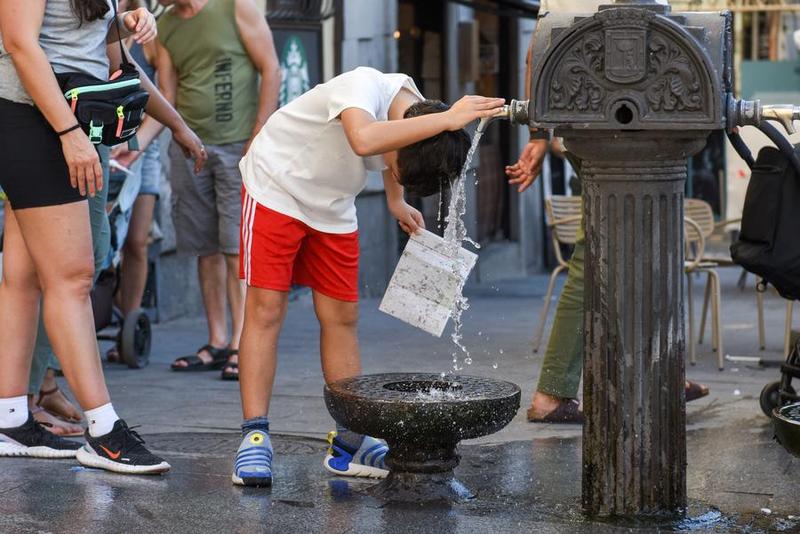
The number of migrants living in Spain without legal residency status continues to rise and has reached 840,000 people, with 91% originating from the Americas, particularly Colombia, Peru and Honduras, according to a report by the Spanish think tank Funcas (Foundation of the Savings Banks).
An estimated 17.2% of the non-EU foreign population living in Spain is in an irregular administrative situation. The estimate is based on the gap between the number of foreign residents effectively living in Spain, according to the National Statistics Institute (INE), and those who hold a residence permit, benefit from international protection, or are in the process of obtaining it.
The data, as of January 1, 2025, point to a notable and sustained increase in irregular migration since 2017, when the estimated figure stood at around 107,000 people, representing 4.2% of the non-EU population residing in Spain.
By origin, migrants from the American continent stand out, totaling around 760,000 people, or 91% of all irregular migrants. Colombians account for nearly 290,000, followed by Peruvians with almost 110,000, and Hondurans with about 90,000. Migrants from Africa (50,000), Asia (15,000) and Europe (14,000) trail far behind.
The figures predate Spain’s latest immigration regulation reform, which came into force in May 2025 and introduces measures to ease access to legal status through residency ties. According to Funcas, the reform would, in principle, tend to reduce the number of migrants in an irregular situation.
International
Historic snowstorm paralyzes Toronto after 60 centimeters of snow

Toronto, Canada’s largest city and the fourth most populous in North America, was largely paralyzed on Monday after a historic snowstorm dumped up to 60 centimeters of snow and sent temperatures plunging to -15 degrees Celsius, authorities said.
Late Sunday, as the scale of the snowfall became clear, city officials declared a climate emergency, triggering extraordinary measures including parking bans on several major streets to facilitate snow removal operations.
Toronto’s public transit authority reported that while some buses remain immobilized, subway and streetcar services are operating with relative normality, though localized disruptions may occur.
A similar situation is affecting the city’s commuter rail network, which remains operational but is experiencing significant delays on its main routes due to the severe weather conditions.
International
Venezuela frees at least 80 political prisoners, NGO says
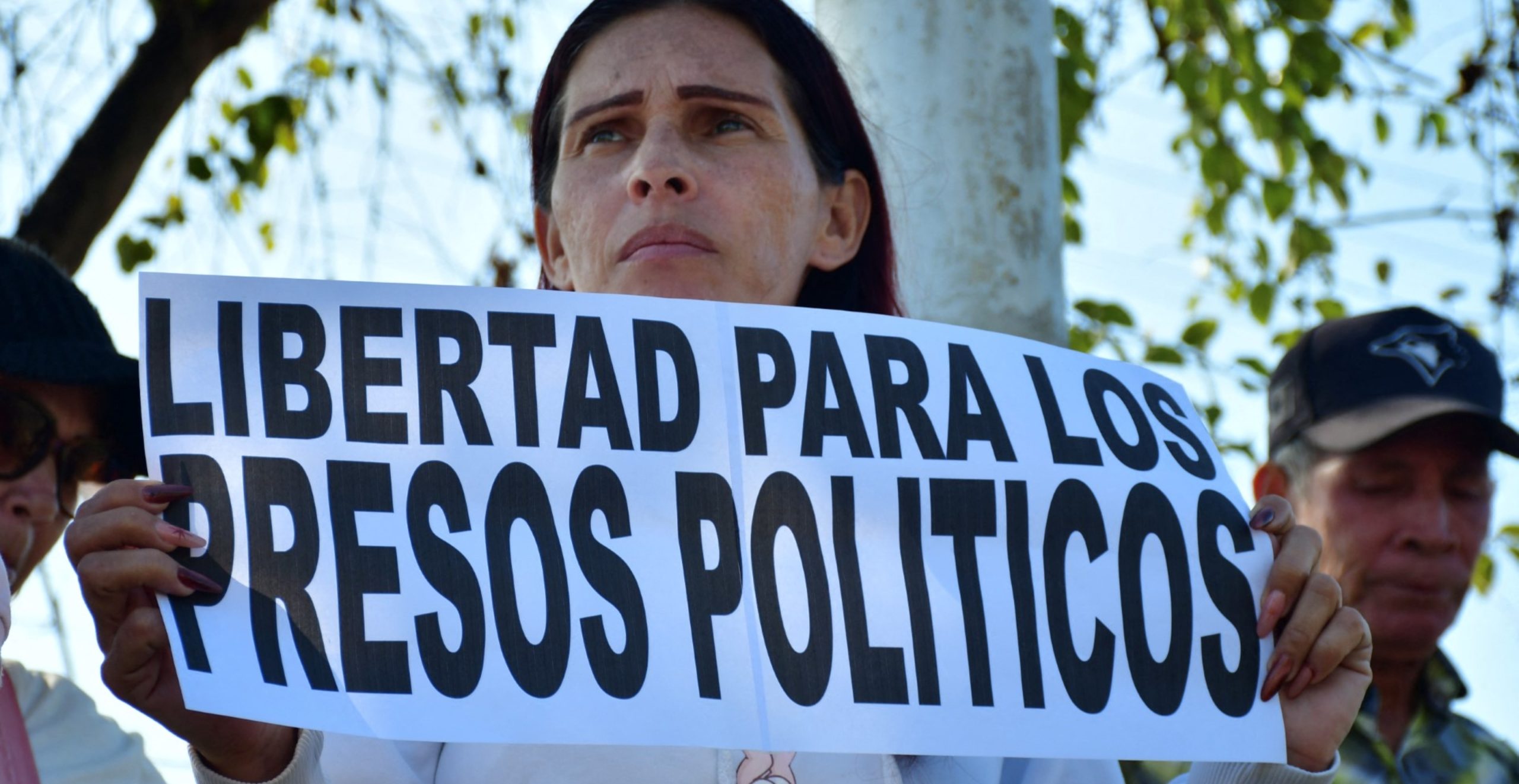
At least 80 political prisoners were released on Sunday across Venezuela, human rights group Foro Penal reported, as the broader process of detainee releases continues at a slow pace under the interim government.
Foro Penal’s director, Alfredo Romero, wrote on social media platform X that verified releases took place nationwide and that the figure could rise as more confirmations are completed.
Attorney Gonzalo Himiob, also from Foro Penal, said the excarcelations occurred during the early hours of the day and emphasized that the number is not yet final pending further verification.
The releases are part of a series of steps announced by Venezuela’s interim leader, Delcy Rodríguez, who took power after the capture of former President Nicolás Maduro in a U.S. military operation on Jan. 3, 2026. Rodríguez has pledged a significant number of liberations but has been criticized by opposition groups and rights organizations for the slow and nontransparent nature of the process.
So far, the Venezuelan government reports that 626 detainees have been freed since December, though independent counts by human rights groups suggest the number of actual political prisoner releases is lower and that many remain behind bars.
Families of those still detained have maintained vigils outside prisons, hopeful for further releases even as broader concerns about political imprisonment and due process persist.
-

 Central America5 days ago
Central America5 days agoMazatenango Carnival cancelled amid State of Siege in Guatemala
-

 International5 days ago
International5 days agoTrump to invite Venezuela’s interim president Delcy Rodríguez to Washington
-

 International5 days ago
International5 days agoMarkets rise as Trump halts Europe tariffs and floats Greenland agreement framework
-

 International5 days ago
International5 days agoVenezuela’s interim president predicts 37% increase in revenues for 2026
-

 International3 days ago
International3 days agoTrump-Era Defense Plan Prioritizes Border Security and Scales Back Global Commitments
-

 Internacionales4 days ago
Internacionales4 days agoMajor winter storm threatens “catastrophic” ice and snow across much of the U.S.
-

 Central America4 days ago
Central America4 days agoGuatemala’s president rules out negotiations with inmates after prison riots
-

 International5 days ago
International5 days agoFour minors killed in deadly clash between FARC dissidents in Colombia’s Amazon
-

 International5 days ago
International5 days agoJapan reopens Kashiwazaki-Kariwa Plant despite public concerns
-

 International3 days ago
International3 days agoBogotá and Quito Seek Dialogue After Tariffs and Power Cut Escalate Tensions
-

 International4 days ago
International4 days agoGuatemala considers sending high-risk gang members to military prisons
-

 International2 days ago
International2 days agoDelcy Rodríguez seeks political agreements after Maduro’s ouster
-

 International2 days ago
International2 days agoFederal immigration agents kill man in Minneapolis, sparking protests and outrage
-

 International4 days ago
International4 days agoRights group says over 5,000 killed in Iran protests, mostly civilians
-

 International16 hours ago
International16 hours agoHistoric snowstorm paralyzes Toronto after 60 centimeters of snow
-

 International16 hours ago
International16 hours agoSpain’s irregular migrant population rises to 840,000, study finds
-

 International17 hours ago
International17 hours agoRights group says nearly 6,000 killed in Iran protest crackdown
-

 Central America17 hours ago
Central America17 hours agoGuatemala seizes over a ton of cocaine hidden in flour at Pacific port
-

 International16 hours ago
International16 hours agoVenezuela frees at least 80 political prisoners, NGO says
-

 International17 hours ago
International17 hours agoEU launches new probe into X over AI-generated fake nude images
-

 International17 hours ago
International17 hours agoFrance debates ban on social media for children under 15
-

 International17 hours ago
International17 hours agoSevere winter storm grips U.S., leaves multiple dead as extreme cold persists

























